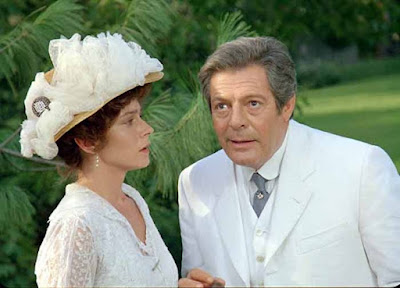Identifying a Character's Needs vs. Wants
Sometimes we start writing one story and end up writing a different story, one we never saw coming. This is what happened to me.
Back in 2020, while the world was shut-in with Covid, a voice came to me. It was a character waiting to be born. I grabbed a pad and a pen and began writing. Soon, she emerged on the page. She was anxious, lonely, and frustrated.
 |
| Fort Christian, an iconic building that dominates Charlotte Amalie. |
 |
| Armistice Day, St. Thomas, Virgin Islands. |
 |
| The Hamburg-America Line dock and coal depot on Hassel Island in the harbor of Charlotte Amalie, St. Thomas. |
The A Story and the B Story
In any novel, a character sets out on a journey. He wants to achieve something. This is the A story. This is the external story of the character, their goal. But inside, they need something more. That is the B story. This is the internal part of the character’s journey. He is on a journey of discovery for some need that is intrinsic to his personhood. Only, he’s most likely not aware of it. Most of us go through life satisfying our external needs and wants, not realizing that our internal needs (or life lessons to be learned) are so much more important. They are what complete us as humans. They are what give us a meaningful life.
There are many internal needs: the need for acceptance, the need to forgive, the need to love, the need to trust, the need to believe in oneself, the need to believe in a higher cause, the need to redeem oneself, etc. Characters are no different from people. The character on the page is on a journey of discovery whether he knows it or not. To reach a satisfying conclusion at the end of a novel, they should have either achieved their “need,” discovered a new one, or rejected the need for something else. But they should be different in some way by the end of the story from where they were at the beginning. And each character will have a different outcome, positive or negative, since no two characters are the same.
One of the most famous fictional characters that comes to mind is Humphrey Bogart’s Rick in Casablanca. In the beginning of the movie, he is jaded and cynical, especially about love. He famously says, “I stick my neck out for no one.” But by the end, he becomes something else: an altruistic freedom-fighter who gives up the woman he loves to help save the world from tyranny. He goes through a change of almost 180 degrees in the span of two hours, one of the greatest transformations in movie history, and all because Rick needed to learn the lesson of forgiveness.
 |
| Humphrey Bogart as Rick Blaine in Casablanca (1942). |
 |
| Ebenezer Scrooge, the anti-heroic protagonist of A Christmas Carol makes an epic journey from miser to hero. |
 |
| Keira Knightly as Elizabeth Bennet in Pride and Prejudice (2005). |
 |
| Dustin Hoffman stars as an actor in need of an attitude adjustment in Tootsie (1982). |
You can read about Emma's stunning transformation in The Unlikely Spy. Click here.




